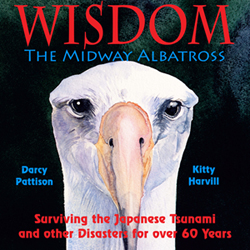In this 3-part series, “The 3 Vs of Fiction,” we have discussed the first two Vs of writing contemporary fiction, voice and vision. The last V is vulnerability, the ability of writers to be open about who they are and to allow their passions, fears, shames, successes, victories and hopes to be expressed clearly on the page.
Why do people read fiction? To be entertained. To learn more about themselves.
The only way you, the author, can accomplish either is to build a relationship between yourself and the reader. It’s like the old time storyteller standing in front of a crowd, responding to the crowd’s reactions, and changing the story to meet the audience’s reactions. As a public speaker, I know how to watch the audience and respond. I can see when interest flags and I might switch what I am about to say to something more interesting, or pause for effect until the audience looks up to see what is happening. Or make a sudden movement. Or deliver the next line in a stage whisper. In short, I respond to the audience and in that response, I build a relationship with the audience for that space of time.
That’s what readers need to feel you’ve done on the page: responded to their needs. But how do you know their needs? Because you know your own.
Are you in despair over a failed marriage? Are you physically hurting because you have fibromyalgia (as I have), so every day tasks are full of pain? Are you rejoicing in the birth of a new grandson, but also grieving because the grandson has Down’s Syndrome and you know that he will be much loved, but your daughter’s family will be very different from what you had expected and hoped? Are you raging at the stupidity of a teacher who has only managed to teach your son that he’s stupid and can never learn math?
Where are you hurting? What are you passions? Where do you CARE ENOUGH to put yourself into a story? THAT is the story you should be telling.
I can’t write about being a prisoner-of-war, because I never was one. But my father was a Japanese POW, surviving the losing battle in the Phillipines, only to be caged for three years under horrific circumstances. Yet, the family story is that he survived because someone had a copy of Henry Wadsworth Longfellow’s epic poem, Evangeline. The prisoners discussed every nuance of the poem, finding ways to keep their minds occupied, using literature to escape a difficult circumstance.
One story about the POW camps in the Phillipines is that some prisoners decided that no human being should ever be treated how they were being treated; these men turned their faces to the wall and within three days, they died.
Why do I care about poetry and Longfellow and a POW camp, when I will never know the horrors of it? Because my father survived.
I often wonder about the depths of the human instinct for survival. Why did some decide that no one should be treated a certain way—and die? Why did my father decide that survival was the most basic of human instincts and, well, why did he survive? When he came home from the war, he married and had seven healthy children. I am fifth out of seven. The human instinct for survival is a vital question for me: it’s why I am alive today.

What is a vital question for you? Write about it.
Great writing in today’s crowded market needs three things: vision, voice and vulnerability. Have you mastered the 3Vs of Great Literature?
Thank you for the three part series.
Vulnerability is an excellent point – I love that. It suggests so much – the reality of feeling, the emotion of expression, and the openness you need to both read and write fiction. Thanks for the series.
Thanks for taking the time to comment. Openness and vulnerability are so hard–but necessary.
Darcy